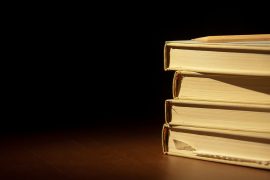Another book editor? Well, there’s a lot that goes into this process — from figuring out layout to determining what which book will be profitable.
Andrea Rotando has been a book editor for Barnes & Nobel and Sterling Publishing since 2001. She’s also an experienced travel writer and the editor of Luxury Cruise Bible. In our interview, she talks about calculating the profit/loss for a book — a reality check for any book author!
Can you explain what you do for a living?
I always knew I wanted to be in a creative field, but I never guessed that I’d end up in book publishing. I moved to New York City in 1991 with a music degree under my belt. I worked at recording studios until I segued into the magazine business by way of Pro Sound News and Musician magazines. Those experiences jump-started by passion for publishing and in 2007 I segued from magazine publishing to book publishing.
I joined Barnes & Noble in 2007 as a senior editor. I acquire, develop, and shepherd the production of projects for the Sterling Innovation and Fall River Press imprints. Both of those Sterling Publishing imprints exist with the express mission of creating proprietary books and kits (book + components) for the value section of Barnes & Noble stores.
I look to acquire books that will appeal to a broad section of Barnes & Noble’s customers and I also license existing content to create new packages of old favorites from third-party vendors. I work on a wide variety of topics, from crafts to cookbooks to light reference to military history.
As a hands-on editor, I’m involved in every aspect of a book’s creation, from contract negotiation to manuscript development to supervising copy editors and proofreaders and being the liaison with the production, design, and sales teams. I also supervise and mentor junior editors on the team.

Andrea Rotondo
When do you use basic math in your job?
Basic math comes to the rescue in so many ways in my job. One major way I use math is to devise and monitor project schedules. One of my responsibilities is to make sure books arrive at each Barnes & Noble store on time. This is incredibly important since promotional tables for our products are set up at the front of each store on a certain date each month and a new batch of books are displayed. If a book doesn’t hit that table on time, the company loses sales. Not only don’t we earn money for that book, we’ve undersold the capability of that table and that means our department will be under its revenue goals for the month.
I use math to calculate the length of time each part of the book creation process takes and I assign those tasks accordingly. When something goes wrong, I look at the timeline and see where it can be expanded or contracted.
Do you use any technology (like calculators or computers) to help with this math?
Sterling Publishing uses a proprietary online profit and loss (p&l) system. This is where we can log on to create or update the p&l statement for each book. The p&l includes fields for costs such as the advance to the author and his or her royalty rate as well as hard costs like editing, design, printing, and freight. The system automatically calculates the margin of the product. If the project doesn’t hit a certain acceptable margin, we don’t move forward.
I have to admit though that I often whip up “back of napkin” p&ls before going to the official system. This helps me get a sense of where the product margin is and where I have to work to trim expenses before committing to official paperwork.
How do you think math helps you do your job better?
Math is like insurance. As long as I have the raw data about a project (advance, royalty rate, number of first printing units, print costs, etc.), I can calculate if that project will be a financial success (i.e., “make its margin”). Without math, there would be a lot of guesswork as to which projects would earn out and which wouldn’t.
How comfortable with math do you feel? Does this math feel different to you? (In other words, is it easier to do this math at work or do you feel relatively comfortable with math all the time?)
Math has never been one of my strong suits but I like numbers, especially as they relate to the economic health of a project. I love being able to look at a project’s data and see where the opportunities are for the author and company to make a buck.
What kind of math did you take in high school? Did you like it/feel like you were good at it?
I don’t feel that I received an adequate education in regards to math while in high school. The courses were very basic. In college, I struggled with calculus. I’ve definitely become more comfortable with math, but I wish I had a more solid foundation from which to build.
Did you have to learn new skills in order to do the math you use in your job? Or was it something that you could pick up using the skills you learned in school?
A basic knowledge of addition/subtraction is really all any editor needs.
Any questions for Andrea? Ask in the comments section!
